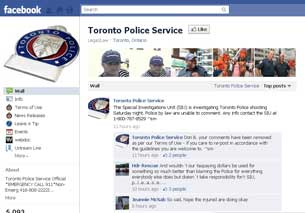THUNDER BAY – For people who use Facebook and Twitter it is a powerful tool to share information with family, friends and associates. In many cases, social media has become easier to keep in contact than telephone or email. It is fast, instant, and immediate. Just how immediate can be demonstrated by the latest Ipsos Reid survey data.
A majority (54%) of Canadians ‘would’ (29% definitely/24% probably) use social media channels, such as Facebook or Twitter to let their friends and family know that they are safe in the event of an emergency, while one-third (31%) ‘would not’ (16% definitely/15% probably) according to a new poll conducted by Ipsos Reid on behalf of the Canadian Red Cross.
One in ten (14%) say that they ‘might or might not’ use social media channels to inform friends and family of their safety in an area-wide emergency.
In many cases perhaps it is that there are fewer mediums which are as instantaneus as social media. That speed has its drawbacks too. In the case of serious incidents, social media can outstrip the authorities in their efforts to inform next of kin for example about an incident.
As witnessed as well in the case of Amanda Todd, social media has a darkside as well.
While some seem to hold concerns that individuals would use social media as a replacement for contacting authorities, to report incidents, that is not the case fully the case as explored by the Ipsos Reid survey. It is more a means that increased numbers of Canadians surveyed suggest that first responders should be monitoring social media.
Some Canadians appear to believe that police and fire for example already are doing that now.
Disaster/Emergency Responders and Social Media Websites
While many indicate that disaster and emergency responders already ‘currently’ monitor social media websites, more indicate that responders ‘should’ monitor social media for any signs of emergency.
The survey for the Red Cross found, “Not only do many Canadians think that these responders should monitor social media, many also believe that they should be prepared to respond to calls for help that are posted in social media networks”.
In Thunder Bay instances where the Thunder Bay Police Service has responded to online concerns and seen those situations be successfully resolved are already on record.
In cases where cyber-bulling, as an example is suspected, the trail is there for police to follow. Sadly however that might be after the fact. What is likely needed is greater engagement and education for the general public to recognize and report suspected incidents.
Canadian police services which have a presence on social media state on their Facebook and Twitter accounts that they do not monitor the accounts for emergencies.
This opens the door for first responders to start greater engagement in many cases. For police services, the Toronto Police Service, and Vancouver Police Services are pathfinders in this area. However greater engagement of the public is happening in smaller centres as well using the Internet as a communications tool.
Of all the ways to receive this kind of information electronically, emails (39%) are the most preferred method for Canadians. One-quarter (25%) say that they prefer text (SMS), while one in ten (13%) prefer smart phone applications. However, two in ten (20%) say that they don’t prefer any of the above options, while 3% don’t know.
In terms of posting information, fewer than one in ten (8%) Canadians say that they have personally experienced a disaster and then posted information or photos about that event to a social media site; more than nine in ten (93%) have not posted such information. Of those who have, an overwhelming majority chose Facebook (87%) as the network on which to post.
Indeed, the development of online communities, especially through the frequent use of social media and networking tools, has provided Canadians with new avenues to receive important information electronically. Two-thirds (64%) of Canadians say that they participate in online communities or social media networks, such as Facebook or Twitter, although four in ten (36%) do not participate in such groups.
Most people who participate in these networks do so daily. Six in ten (62%) participate in their online community/social network ‘every day or nearly every day’.
The list below outlines fully how frequently Canadians participate in their online communities and social networks:
Every day or nearly every day – 62%
A few times a week – 21%
Once a week – 7%
A few times a month – 6%
One a month or less often – 3%
Electronic Emergency Updates
Although TV (39%) and radio (26%) tend to be the preferred ways of receiving news about an emergency, one-third (31%) prefer to get their news updates electronically (such as by e-mail, web site post, text alert, online news, etc.).
When it comes to signing up for electronic updates, Canadians are more likely to sign up for electronic alerts in times of emergency, compared to general preparation updates. Half (49%) ‘would’ (21% definitely/28% probably) sign up for emails, text alerts, or smart phone applications to receive information about disaster preparedness when there are official warnings in their community. One-third (31%), however, ‘would not’ (13% definitely/18% probably) sign up for such alerts, while two in ten (19%) are indifferent.
Six in ten (60%) ‘would’ (28% definitely/32% probably) sign up for information via electronic alerts on the location of medical services.
The world of communications continues to evolve. It is doing so at a speed unheard of in recent times. It was about six years ago that Facebook and Twitter were unknown words in today’s context.

